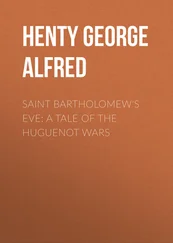George Henty - For the Temple - A Tale of the Fall of Jerusalem
Здесь есть возможность читать онлайн «George Henty - For the Temple - A Tale of the Fall of Jerusalem» — ознакомительный отрывок электронной книги совершенно бесплатно, а после прочтения отрывка купить полную версию. В некоторых случаях можно слушать аудио, скачать через торрент в формате fb2 и присутствует краткое содержание. Жанр: foreign_children, foreign_antique, foreign_prose, на английском языке. Описание произведения, (предисловие) а так же отзывы посетителей доступны на портале библиотеки ЛибКат.
- Название:For the Temple: A Tale of the Fall of Jerusalem
- Автор:
- Жанр:
- Год:неизвестен
- ISBN:нет данных
- Рейтинг книги:4 / 5. Голосов: 1
-
Избранное:Добавить в избранное
- Отзывы:
-
Ваша оценка:
- 80
- 1
- 2
- 3
- 4
- 5
For the Temple: A Tale of the Fall of Jerusalem: краткое содержание, описание и аннотация
Предлагаем к чтению аннотацию, описание, краткое содержание или предисловие (зависит от того, что написал сам автор книги «For the Temple: A Tale of the Fall of Jerusalem»). Если вы не нашли необходимую информацию о книге — напишите в комментариях, мы постараемся отыскать её.
For the Temple: A Tale of the Fall of Jerusalem — читать онлайн ознакомительный отрывок
Ниже представлен текст книги, разбитый по страницам. Система сохранения места последней прочитанной страницы, позволяет с удобством читать онлайн бесплатно книгу «For the Temple: A Tale of the Fall of Jerusalem», без необходимости каждый раз заново искать на чём Вы остановились. Поставьте закладку, и сможете в любой момент перейти на страницу, на которой закончили чтение.
Интервал:
Закладка:
"And nobody will beat me, for telling you?" the boy asked.
"Certainly not, Jonas."
"It wouldn't take you beyond the Romans. They have got guards, all round."
"No, but it might enable us to get down to the water," John urged, the sight of the unemptied horn causing the thought to flash through his mind that the boy had been in the habit of going down, and getting water.
"Well, I will tell you," the boy said. "I don't like to tell, because I don't think there's anyone here knows it, but me. I found it out, and I never said a word about it, because I was able to slip away when I liked; and no one knows anything about it. But it doesn't make much difference, now, because the Romans are going to kill us all. So I will tell you.
"At the end of the rock, you have to climb down about fifty feet. It's very steep there, and it's as much as you can do to get down; but when you have got down that far, you get to the head of a sort of dried-up water course, and it ain't very difficult to go down there and, that way, you can get right down to the stream. It don't look, from below, as if you could do it; and the Romans haven't put any guards on the stream, just there. I know, because I go down every morning, as soon as it gets light. I never tried to get through the Roman sentries; but I expect one could, if one tried.
"But I don't see how you are to bring water up here, if that's what you want. I tell you, it is as much as you can do to get up and down, and you want both your hands and your feet; but I could go down and bring up a little water for you, in a skin hanging round my neck, if you like."
"I am afraid that wouldn't be much good, Jonas," John said; "but it might be very useful to send messages out, that way."
"Yes," the boy said; "but you see I have always intended, when the Romans took the place, to make off that way. If other people go, it's pretty sure to be found out, before long; and then the Romans will keep watch. But it don't much matter. I know another place where you and I could lie hidden, any time, if we had got enough to eat and drink. I will show you but, mind, you must promise not to tell anyone else. There's no room for more than two; and I don't mean to tell you, unless you promise."
"I will promise, Jonas. I promise you, faithfully, not to tell anyone."
"Well, the way down ain't far from the other one. I will show it you, one of these days. I went down there, once, to get a hawk I had taken from the nest, and tamed. I went down, first, with a rope tied round me; but I found I could have done it without that–but I didn't tell any of the others, as I wanted to keep the place to myself.
"You climb down about fifty feet, and then you get on a sort of ledge, about three feet wide and six or seven feet long. You can't see it from above, because it's a hollow, as if a bit of rock had fallen out. Of course, if you stood up you might be seen by someone below, or on the hill opposite; but it's so high it is not likely anyone would notice you. Anyhow, if you lie down there, no one would see you. I have been down there, often and often, since. When she gets too bad to bear, I go down there and take a sleep; or lie there and laugh, when I think how she is hunting about for me to carry down the pails to the stream, for water."
"I will say nothing about it, Jonas, you may be quite sure. That place may save both our lives. But the other path I will tell Josephus about. He may find it of great use."
Josephus was indeed greatly pleased, when he heard that a way existed by which he could send out messages. Two or three active men were chosen for the work; but they would not venture to descend the steep precipice, by which Jonas made his way down to the top of the water course, but were lowered by ropes to that point. Before starting they were sewn up in skins so that, if a Roman sentry caught sight of them making their way down the water course, on their hands and feet, he would take them for dogs, or some other animals. Once at the bottom, they lay still till night, and then crawled through the line of sentries.
In this way Josephus was able to send out dispatches to his friends outside, and to Jerusalem; imploring them to send an army, at once, to harass the rear of the Romans, and to afford an opportunity for the garrison of Jotapata to cut their way out. Messages came back by return and, for three weeks, communications were thus kept up; until one of the messengers slipped while descending the ravine and, as he rolled down, attracted the attention of the Romans who, after that, placed a strong guard at the foot of the water course.
Until this discovery was made, Jonas had gone down regularly, every morning, and drank his fill; and had brought up a small skin of water to John, who had divided it among the children whom he saw most in want of it–for the pressure of thirst was now heavy. The Romans, from rising ground at a distance, had noticed the women going daily with jugs to the cistern, whence the water was doled out; and the besiegers directed their missiles to that point, and many were killed, daily, while fetching water.
A dull despair now seized the Jews. So long as they were fighting, they had had little time to think of their situation; but now that the enemy no longer attacked, and there was nothing to do but to sit down and suffer, the hopelessness of their position stared them in the face. But there was no thought of surrender. They knew too well the fate that awaited them, at the hands of the Romans.
They were therefore seized with rage, and indignation, when they heard that Josephus and some of the principal men were thinking of making an endeavor to escape. John, who had hitherto regarded his leader with a passionate devotion–although he thought that he had been wrong in taking to the fortified towns, instead of fighting among the mountains–shared in the general indignation at the proposed desertion.
"It is he who has brought us all here," he said to Jonas–who had attached himself to him with dog-like fidelity–"and now he proposes to go away, and leave everyone here to be massacred! I cannot believe it."
The news was, however, well founded for, when the inhabitants crowded down to the house–the women weeping and wailing, the men sullen and fierce–to beg Josephus to abandon his intention, the governor attempted to argue that it was for the public good that he should leave them. He might, he said, hurry to Jerusalem, and bring an army to the rescue. The people, however, were in no way convinced.
"If you go," they said, "the Romans will speedily capture the city. We are ready to die, all together–to share one common fate–but do not leave us."
As Josephus saw that, if he did not accede to the prayers of the women, the men would interfere by force to prevent his carrying out his intentions, he told them he would remain with them; and tranquillity was at once restored. The men, however, came again and again to him, asking to be led out to attack the Romans.
"Let us die fighting," was the cry. "Let us die among our foes, and not with the agonies of thirst."
"We must make them come up to attack us, again," Josephus said. "We shall fight to far greater advantage, so, than if we sallied out to attack them in their own intrenchments–when we should be shot down by their archers and slingers, before ever we should reach them."
"But how are we to make them attack us? We want nothing better."
"I will think it over," Josephus said, "and tell you in the morning."
In the morning, to the surprise of the men, they were ordered to dip large numbers of garments into the precious supply of water, and to hang them on the walls. Loud were the outcries of the women, as they saw the scanty store of water, upon which their lives depended, so wasted; but the orders were obeyed, and the Romans were astonished at seeing the long line of dripping garments on the wall.
Читать дальшеИнтервал:
Закладка:
Похожие книги на «For the Temple: A Tale of the Fall of Jerusalem»
Представляем Вашему вниманию похожие книги на «For the Temple: A Tale of the Fall of Jerusalem» списком для выбора. Мы отобрали схожую по названию и смыслу литературу в надежде предоставить читателям больше вариантов отыскать новые, интересные, ещё непрочитанные произведения.
Обсуждение, отзывы о книге «For the Temple: A Tale of the Fall of Jerusalem» и просто собственные мнения читателей. Оставьте ваши комментарии, напишите, что Вы думаете о произведении, его смысле или главных героях. Укажите что конкретно понравилось, а что нет, и почему Вы так считаете.












